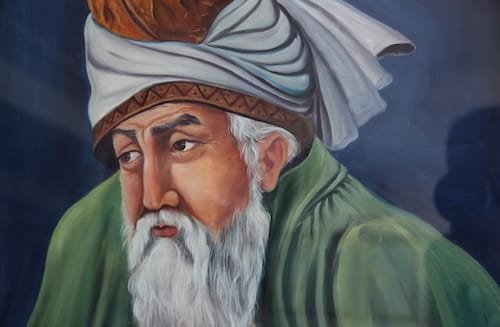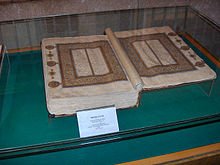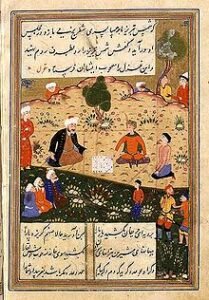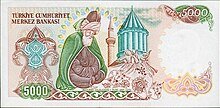Jalal al-Din Rumi :The Poet of Love and Spiritual Wisdom

Jalal al-Din Muhammad Rumi (1207–1273 CE) was a Persian poet, Islamic scholar, and Sufi mystic whose works continue to inspire people across cultures and religions. His poetry, filled with themes of love, divine unity, and self-discovery, transcends time and language, making him one of the most widely read poets in the world.
The Influence of Shams al-Tabrizi
In 1244, Rumi encountered Shams al-Tabrizi, a mysterious Sufi dervish who became his spiritual mentor and closest companion. Shams introduced Rumi to the path of Sufism, shifting his focus from traditional religious scholarship to a more mystical understanding of Islam, centered on love, devotion, and divine union.
Their deep bond was controversial, drawing jealousy from Rumi’s followers. After Shams’ sudden disappearance—possibly due to murder—Rumi was heartbroken. His grief inspired him to express his spiritual longing and love for the Divine through poetry.
Rumi’s Poetry and Major Works
Masnavi (The Spiritual Couplets) :Often referred to as “The Quran in Persian”, this six-volume epic is one of the greatest works of Sufi literature. It contains thousands of verses filled with parables, philosophical discussions, and guidance on the soul’s journey toward divine love.
Divan-e Shams-e Tabrizi: A collection of ghazals (lyrical poems) dedicated to Shams al-Tabrizi. These poems express intense love, longing, and mystical insight, symbolizing Rumi’s spiritual journey.
Fihi Ma Fihi (It Is What It Is):A compilation of Rumi’s discourses on Sufi philosophy, spirituality, and the nature of divine love. This prose work offers practical wisdom on achieving inner peace.


Legacy and Influence of Rumi
Jalal al-Din Rumi’s legacy spans centuries, influencing poetry, philosophy, spirituality, and culture worldwide. His message of love, unity, and divine connection continues to resonate across different cultures, making him one of the most widely read and celebrated poets in history. His influence is particularly strong in Eastern mysticism, Islamic thought, Western literature, and modern spirituality.
Influence on Eastern and Islamic Thought
Rumi is considered one of the greatest Persian poets, and his works have shaped Persian, Turkish, Urdu, and Arabic poetry for centuries. Writers such as Hafiz, Saadi, and Jami drew inspiration from his mystical themes. His poetry helped establish mystical poetry as a major literary tradition in the Islamic world, influencing Ottoman, Mughal, and Persian poets. His verses emphasize divine love, spiritual transformation, and the pursuit of inner enlightenment, themes that remain central in Persian and Islamic literature.
One of Rumi’s most lasting contributions is the establishment of the Mevlevi Order, also known as the Whirling Dervishes. This Sufi movement, founded by his followers, practices Sama, a spiritual dance symbolizing the soul’s journey toward divine love. Rumi’s teachings on tolerance, love, and self-purification became foundational principles for Sufi mysticism. His influence can be seen in the works of later Sufi scholars such as Ibn Arabi, Shah Waliullah, and Abdul-Qadir Gilani. His poetry continues to shape Islamic spirituality and Sufi practices across the Middle East, Central Asia, and South Asia.
Conclusion
Jalal al-Din Rumi was more than just a poet—he was a spiritual guide, a philosopher, and a beacon of divine love. His teachings emphasize the power of love, the beauty of surrender, and the unity of all creation. Centuries after his passing, his words continue to inspire people; from all walks of life, proving that true wisdom is timeless.

As Rumi beautifully said:
“Come, come, whoever you are. Wanderer, worshiper, lover of leaving—it doesn’t matter. Ours is not a caravan of despair.”
Here are some reliable links where you can read Rumi’s poetry online


